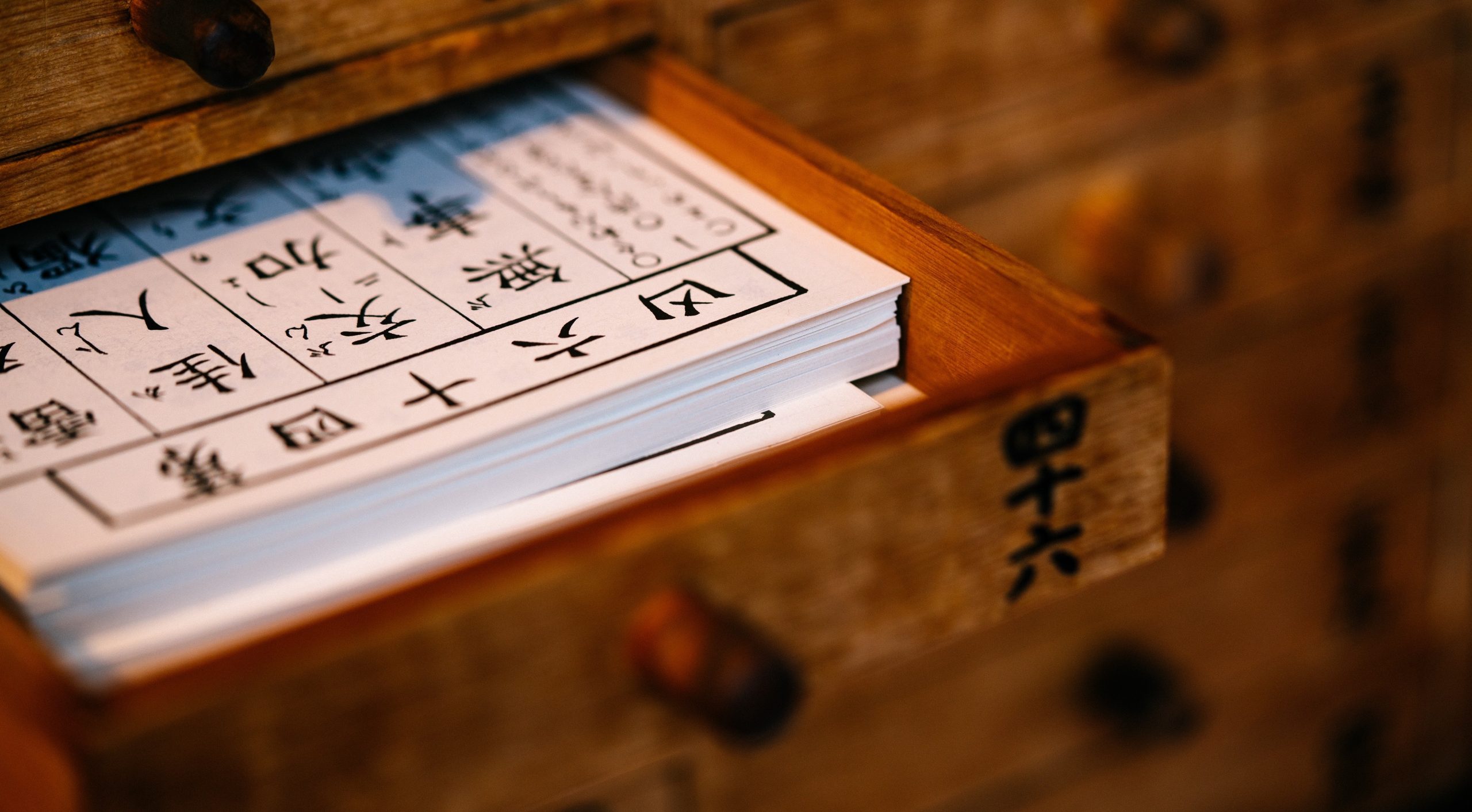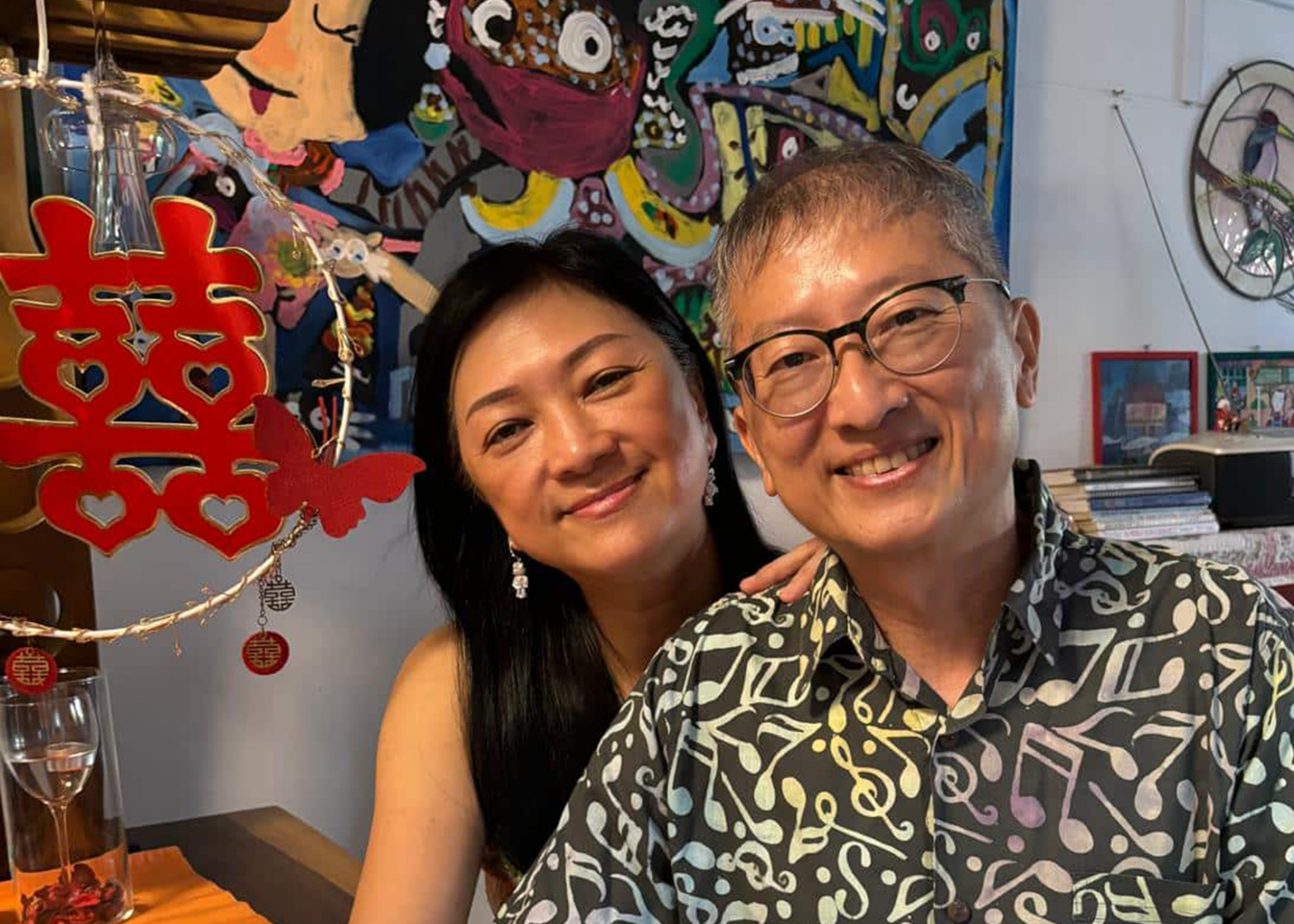
"What is at stake, therefore, is the love of our neighbour: that we seek to understand their culture correctly, and to remove any possible opposition to the Gospel," writes the author in his recently-released book, A Christian Perspective on Chinese Medicine. Photo by Leon Gao from Unsplash.
“There are many Christians who are suspicious of the Chinese medical tradition and actively discourage Christians from using it, let alone practise it as Chinese medical physicians.”
So wrote Dr Lai Pak-Wah in his recently-released book, A Christian Perspective on Chinese Medicine, addressing theological concerns about Chinese medicine.
“Their concern is not just the scientific legitimacy of Chinese medicine, but whether the discipline has been tainted” by traditional Chinese roots, he writes.
“Some argue that Chinese medical theories (particularly the concepts of yinyang and qi) are not only unscientific and unattested to by biblical teachings, but are also hindered by” traditional Chinese philosophy, he continued. “For these reasons, Christians should not consult nor practise Chinese medicine.”
He added: “Not all Christians agree with this assessment, however.”
By popular request, his new book, released on June 15, distills for a general audience, the ideas from The Dao of Healing, his in-depth exploration of the histories and philosophies that have shaped both Western biomedicine and Chinese medicine.
Dr Lai is the principal of Bible Graduate School of Theology (BGST) and a lecturer of church history and historical theology.
In a previous interview with Salt&Light, Dr Lai said that when properly understood, Traditional Chinese Medicine (TCM) is not incompatible with the Christian faith. However, he clarified that there is a difference between secular Chinese medicine and spiritual healing like drinking ash water, which is practised in some faiths.
Below are excerpts from Dr Lai’s new book, republished with permission:
TCM as outreach
Many Chinese-speaking Christians consult Chinese medical physicians regularly. Their diet is also often informed by Chinese medical principles. And there are a growing number of Christian Chinese medicine practitioners. Some even use it as a form of medical service in their churches’ outreach to their communities. Pastor Moses Pi, for example, is not only a pastor of Bethel AOG’s Mandarin service but also holds a doctorate in Chinese medicine. Twice a week, he offers free Chinese medical consultations as part of the church’s service to its community.
“Can Christians use Chinese medicine?” It is crucial for us to answer this question carefully for the following reasons.
1. The non-Christian Chinese community often regards Christianity as a Western religion that undermines and looks down on Chinese culture, Chinese medicine being a significant aspect of it. If our dismissal or rejection of Chinese medicine is not based on robust theological and medical grounds, we alienate the non-Christian community and create an unnecessary stumbling block to the Gospel. What is at stake, therefore, is the love of our neighbour: that we seek to understand their culture correctly, and to remove any possible opposition to the Gospel.
2. If Chinese medicine is a legitimate form of medicine, it becomes another viable therapeutic option for Christians. This can only improve the health and well-being of the Christian community.
3. Finally, a study of Chinese medicine requires us to have a better grasp of Chinese philosophy and culture. Which will be helpful when we seek to contextualise the Gospel for the Chinese.
Biblical perspective on medicine
The Bible does affirm the use of medicine but does not prescribe any specific medical theories or principles. Nonetheless, we can construct a theology of medicine, which will allow us to assess the theological basis of a medical theory and its practice.
Our study must begin with Genesis 3, where we find the serpent misleading Adam and Eve to partake of the fruit from the tree of the knowledge of good and evil. The net result is that they were banished from the Garden of Eden, condemned to suffer and eventually die. As Romans 5:12 puts it,
Therefore, just as sin entered the world through one man, and death through sin, and in this way death came to all people, because all sinned.
Since then, every civilisation that we know — from the Babylonians and Egyptians to the Greeks — has developed forms of medicine to treat the sick among them. When we turn to the Bible, we find instances where the use of medicine is affirmed, particularly in the New Testament. The apostle Paul hints at this when he describes Luke, his fellow evangelist, as not only his “dear friend” but also a “doctor.” Later, in 1 Timothy 5:23, Paul even provides Timothy some rudimentary medical advice:
We find the church fathers affirming medicine as a gift of God — His providential means of relieving human suffering.
Stop drinking only water, and use a little wine because of your stomach and your frequent illnesses.
While most Roman cities had access to water, not all had clean, potable water (if at all!). If one had a weak stomach, he may not have been able to adapt to the local water resources. This is why Paul recommended Timothy add a little wine to his water, so as to disinfect it.
When we turn to the Christians living in the first few centuries (known otherwise as the church fathers), we find them likewise affirming medicine as a gift of God — His providential means of relieving human suffering.
The fourth century is the earliest period where we find Christians discussing medical theories. Time and again, what they propound is not some form of unique Christian medical theory. Rather, it is the mainstream medicine used by everyone (Christian and non-Christian) during their day: Galenic-Hippocratic medicine.
The nature of creation
Unfortunately, our first ancestors disobeyed God and were banished from Paradise. Consequently, our relationship with God and His creation was fractured permanently. This being said, neither our sin nor Satan could damage the goodness of God’s creation. It is not within our power to change the nature of creation. Paul makes this clear in 1 Timothy 4:3–5, when he declares that,
The religious ideals imposed on any kind of food, or any creature of God, does not alter their nature.
…everything God created is good, and nothing is to be rejected if it is received with thanksgiving, because it is consecrated by the word of God and prayer.
Elsewhere in 1 Corinthians 8, Paul makes it evident that the non-Christian or religious ideals imposed on any kind of food, or for that matter, any creature of God, does not alter their nature. A good case in point is the popular Chinese green tea, Tie Guanyin, or Iron Goddess of Mercy. Its Buddhist-sounding name does not, in any way, change its properties or nutritional value as green tea.
Chinese metaphors
Since the beginning of Chinese philosophy, the Chinese never sought to understand the world by breaking it down to its constituent parts or elements. Instead, Chinese culture, including Chinese medicine, has generally emphasised the learning and understanding of how the different parts or “dots” relate to one another. In other words, a systemic understanding of the world.
In Chinese philosophy, yin denotes attributes such as stillness, coldness, softness and femininity; while yang describes the opposite attributes like movement, hotness, hardness and masculinity. Both yin and yang do not exist independently, they always co-exist in mutually dependent relationships. More importantly both yin and yang do not denote any specific natures or things. Rather, they are relational categories used for the description of relationships between any two entities.
The Bible has nothing to say as to whether yinyang is right or wrong … or the validity of scientific discoveries we have made
It should be clear that the idea of yinyang has nothing to do with the philosophy of nature, or as Western philosophers call it, ontology. There is nothing which is absolutely yin or yang by nature.
The metaphors of yinyang, qi and wuxing are regularly used in Chinese philosophy and medicine to articulate the intricate relationships in the world, be it between organs in the human bodies, relationships between human beings or those between different entities in the world. Yinyang enables one to describe the intimate relationship and dependence between two entities, while qi describes how one entity can affect or influence another. It also allows one to articulate the extent to which two entities’ relationships are healthy or poor. Finally, wuxing enables us to describe their relationships further by denoting how an entity subsists in different relations with one another, sometimes opposing one entity while, at other times, complementing another.
A person falls ill whenever the organ-meridian network experiences a yinyang imbalance, and recovers when this balance is re-established.
In short, just as the Western emphasis on ontology, or the “Dot Perspective” of reality, is neither affirmed nor rejected by biblical teachings, so also the Chinese’s relational or systemic perspective of reality. The Bible has nothing to say as to whether yinyang is right or wrong. Just as it has nothing to say about the validity of classical or quantum mechanics, DNA or the many scientific discoveries we have made through the centuries.
The Genesis ideal
This being said, the Chinese ideal of Heaven and Humanity in Unity (tianren heyi) does parallel the idyllic state described in Genesis 1 — a state where relations between God, humanity and all creation are harmonious. A state of being “very good”. To this extent then, we can say that there is a parallel between the Genesis ideal and the Chinese aspiration of all things subsisting in harmonious relations.
We should realise that whether it is Chinese or modern medicine, both are means by which God heals us.
While the Scripture does not prescribe specific medical theories, it does provide a basis for evaluating the theological legitimacy of a medical discipline.
Though modern and Chinese medicine have adopted different approaches to developing their medical knowledge, both have also employed experimentation as a means of assessing the efficacy of their treatments. And both have yielded positive therapeutic results – which indicates that their approaches adhere to the laws of nature invested in the human nature created by God. Consequently, one might say that both medical traditions are theologically legitimate.
This being said, both, as human products, are also limited and are works in progress. There will always be room for improvement. Most importantly, we should realise that whether it is Chinese or modern medicine, both are means by which God heals us.
Ultimately, the true Healer of our illnesses remains Jesus Christ our Lord.
A Christian Perspective on Chinese Medicine ($8 for ebook, $10 for paperback), published by Graceworks, is available here.
RELATED STORIES:
From Africa to China, Dr Diarra Boubacar heals across continents
We are an independent, non-profit organisation that relies on the generosity of our readers, such as yourself, to continue serving the kingdom. Every dollar donated goes directly back into our editorial coverage.
Would you consider partnering with us in our kingdom work by supporting us financially, either as a one-off donation, or a recurring pledge?
Support Salt&Light


